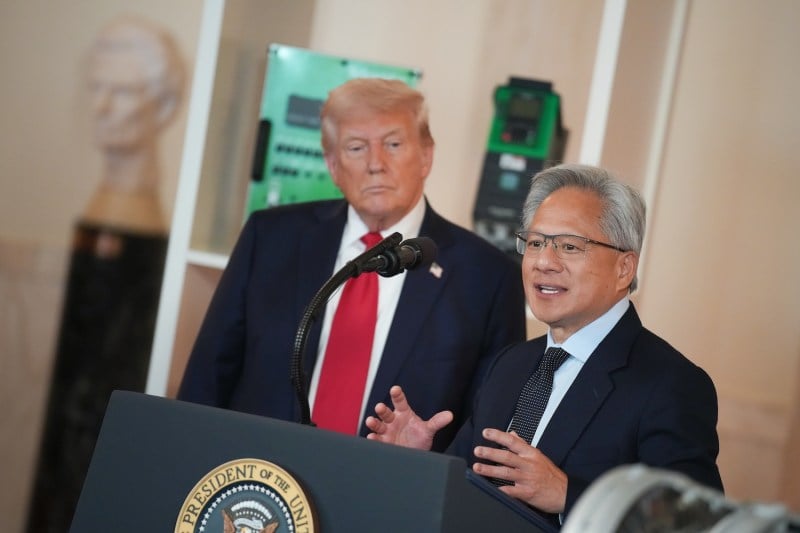Recent shifts in U.S. technology policy toward China have raised alarms regarding national security and international credibility. The Trump administration has demonstrated inconsistent stances on critical issues, particularly involving semiconductor sales and the social media platform TikTok. Initially opposing the sale of Nvidia‘s advanced H20 chips to China due to national security risks, the administration has since reversed its position, facilitating sales in exchange for a share of profits. This backtrack also extends to concerns surrounding TikTok, where a potential deal could allow Chinese stakeholders to retain influence over the platform’s algorithm.
The implications of these policy reversals are significant. By exhibiting such volatility, the U.S. undermines its credibility in addressing the security threats posed by Chinese technology. This inconsistency risks long-term strategic vulnerabilities, affecting foreign policy, intelligence partnerships, and the cybersecurity of supply chains. The potential consequences could be severe, resurfacing in future negotiations and collaborations with allies and adversaries alike.
Concerns Over Chip Sales and National Security
In January 2023, discussions within the Trump administration indicated a renewed focus on restricting sales of Nvidia’s H20 chips to China. These chips are critical for artificial intelligence applications, potentially enhancing Chinese military and intelligence capabilities. Given Beijing’s demonstrated ability to exert control over its private sector, the sale of such technology raises legitimate security concerns. Earlier efforts to impose restrictions on these sales were seen as vital to maintaining U.S. technological superiority and preventing sensitive technology from reaching adversaries.
However, after a meeting with Nvidia executives, the U.S. administration’s resolve appeared to weaken. Reports indicate that officials had taken considerable time to formulate stricter controls, only to abandon those plans in favor of economic interests. This inconsistency signals to global partners that U.S. security commitments may be negotiable, leading to skepticism among allies regarding the seriousness of U.S. national security claims.
TikTok’s Influence and Credibility Erosion
The policy on TikTok illustrates similar inconsistencies. The Trump administration initially labeled the app a significant national security threat, leading to efforts for a complete ban. Yet, as negotiations progressed, the administration’s stance softened, allowing ByteDance and other Chinese investors to retain a stake in the company. The lack of clarity surrounding data security and algorithm oversight further complicates the situation, as U.S. allies remain cautious about their own national security vulnerabilities.
These reversals have broader implications for U.S. relations with its allies. Countries in Europe, for instance, may question the legitimacy of U.S. security assessments, fearing that economic motivations could overshadow genuine concerns about technology risks. The credibility of the U.S. as a leader in global security matters is at stake, especially when future threats emerge from Chinese technology.
The effectiveness of U.S. policy relies heavily on multilateral coalitions and the trust of allies. As the U.S. navigates this complex landscape, maintaining a consistent and reliable stance on technology security is crucial. Without this credibility, the U.S. risks alienating its partners and emboldening adversaries, who may perceive U.S. commitments as ephemeral.
In conclusion, the recent flip-flopping of U.S. technology policy regarding China poses significant risks not only to national security but also to international relationships. A more coherent approach is necessary to ensure that the U.S. can effectively address the challenges posed by Chinese technology and maintain its standing as a global leader in security and economic matters.
